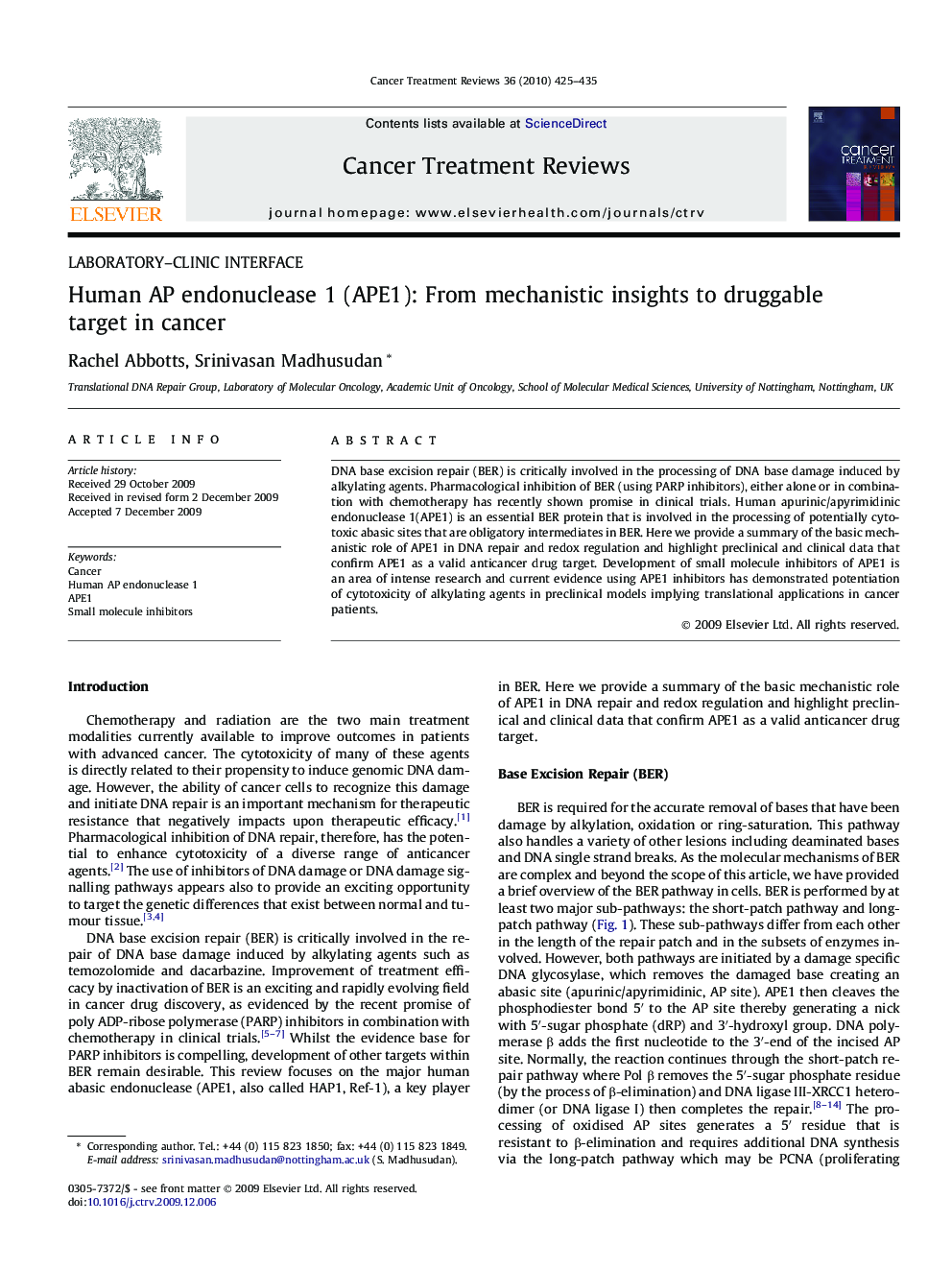| Article ID | Journal | Published Year | Pages | File Type |
|---|---|---|---|---|
| 3980120 | Cancer Treatment Reviews | 2010 | 11 Pages |
DNA base excision repair (BER) is critically involved in the processing of DNA base damage induced by alkylating agents. Pharmacological inhibition of BER (using PARP inhibitors), either alone or in combination with chemotherapy has recently shown promise in clinical trials. Human apurinic/apyrimidinic endonuclease 1(APE1) is an essential BER protein that is involved in the processing of potentially cytotoxic abasic sites that are obligatory intermediates in BER. Here we provide a summary of the basic mechanistic role of APE1 in DNA repair and redox regulation and highlight preclinical and clinical data that confirm APE1 as a valid anticancer drug target. Development of small molecule inhibitors of APE1 is an area of intense research and current evidence using APE1 inhibitors has demonstrated potentiation of cytotoxicity of alkylating agents in preclinical models implying translational applications in cancer patients.
